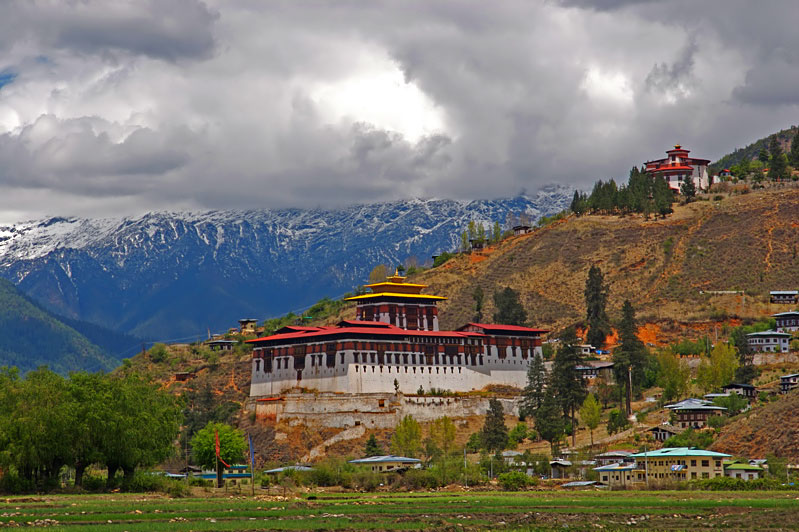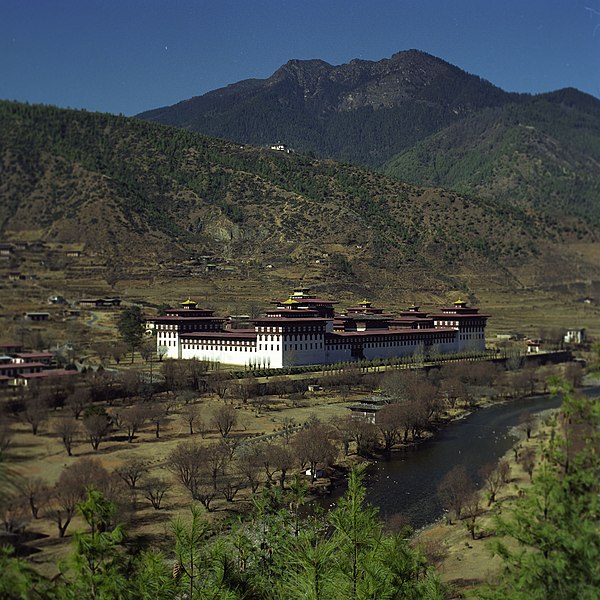Difference between revisions of "Adopting from Bhutan"
| Line 25: | Line 25: | ||
'''''Effective January 1, 2012, the Government of [[Bhutan]] temporarily suspended all intercountry adoptions pending approval of the Child Protection Act of 2012. The Child Protection Act will clarify [[adoption]] procedures and help ensure the best interests of the child. No [[timeline]] has been provided as to when the [[adoption]] bill will be passed. Please monitor the [http://adoption.state.gov/ Adoption.state.gov] for additional developments.''''' | '''''Effective January 1, 2012, the Government of [[Bhutan]] temporarily suspended all intercountry adoptions pending approval of the Child Protection Act of 2012. The Child Protection Act will clarify [[adoption]] procedures and help ensure the best interests of the child. No [[timeline]] has been provided as to when the [[adoption]] bill will be passed. Please monitor the [http://adoption.state.gov/ Adoption.state.gov] for additional developments.''''' | ||
| − | |||
| − | |||
| − | |||
| − | |||
| − | |||
| − | |||
| − | |||
| − | |||
| − | |||
| − | |||
| − | |||
| − | |||
| − | |||
| − | |||
| − | |||
| − | |||
| − | |||
| − | |||
| − | |||
| − | |||
| − | |||
| − | |||
| − | |||
| − | |||
| − | |||
| − | |||
| − | |||
| − | |||
| − | |||
| − | |||
| − | |||
| − | |||
| − | |||
| − | |||
| − | |||
| − | |||
Revision as of 03:23, 23 October 2014
Notice: As of July 14, 2014, all individuals and agencies facilitating international adoptions must be in compliance with the Intercountry Universal Accreditation Act.
About Bhutan
In 1865, Britain and Bhutan signed the Treaty of Sinchulu, under which Bhutan would receive an annual subsidy in exchange for ceding some border land to British India. Under British influence, a monarchy was set up in 1907; three years later, a treaty was signed whereby the British agreed not to interfere in Bhutanese internal affairs, and Bhutan allowed Britain to direct its foreign affairs. Read more About Bhutan.
Hague Convention Information
Bhutan is not party to the Hague Convention on Protection of Children and Co-operation in Respect of Intercountry Adoption (Hague Adoption Convention). Therefore, when the Hague Adoption Convention entered into force for the United States on April 1, 2008, intercountry adoption processing for Bhutan did not change.
Effective January 1, 2012, the Government of Bhutan temporarily suspended all intercountry adoptions pending approval of the Child Protection Act of 2012. The Child Protection Act will clarify adoption procedures and help ensure the best interests of the child. No timeline has been provided as to when the adoption bill will be passed. Please monitor the Adoption.state.gov for additional developments.
Contact Information
U.S. Embassy in New Delhi
American Embassy Shantipath, Chanakya Puri New Delhi – 110 021 INDIA Telephone number: 091-011-24198000 or 24198062 (this number is answered from 10AM to 12 Noon IST) Fax number: 091-011-24198407 Email address: ACSnd@state.gov – For American Citizens Services IVnd@state.gov – For Immigrant Visa Unit Website: U.S. Embassy New Delhi
The National Commission for Women and Children (NCWC) Post Box 556 Thimpu, BHUTAN Tel: 00975-2-334549/334550 Contacts: Rinchen Chopel, Executive Director E-mail: Rinchophel@gmail.com Pema Galmo, Assistant Program Officer E-mail: Pgalmo@gmail.com
Consulate of Bhutan
Bhutan Consulate General 2 U.N. Plaza, 27th Floor New York, NY 10017 Telephone: (212) 826-1919 Fax: (212) 826-2998
Office of Children's Issues
U.S. Department of State CA/OCS/CI SA-17, 9th Floor Washington, DC 20522-1709 Tel: 1-888-407-4747 E-mail: AskCI@state.gov Internet: U.S. Department of State
U.S. Citizenship and Immigration Services (USCIS)
For questions about immigration procedures, call the National Customer Service Center (NCSC) 1-800-375-5283 (TTY 1-800-767-1833)
SOURCE
Intercountry Adoption, Bureau of Consular Affairs. U.S. Department of State Country Information[1]






